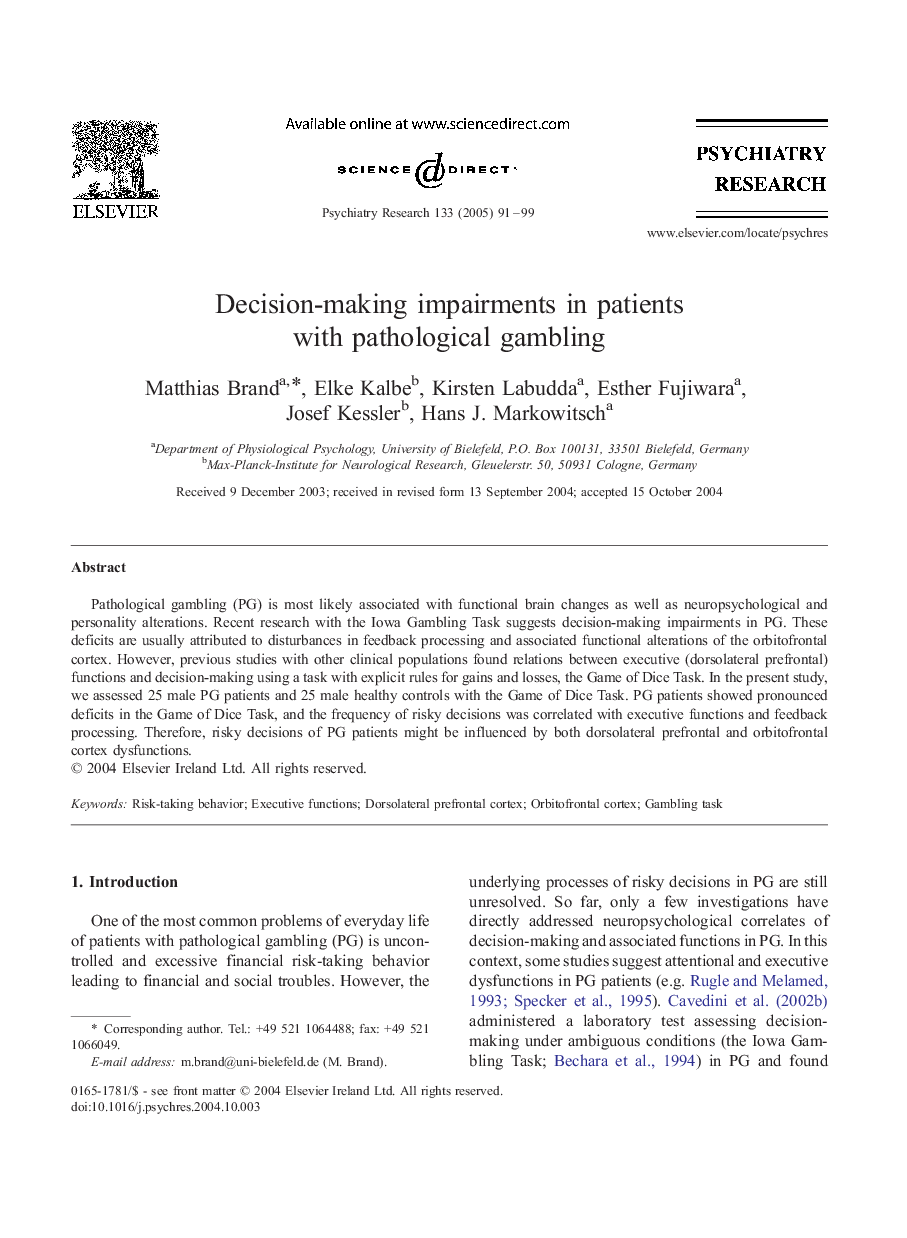| Article ID | Journal | Published Year | Pages | File Type |
|---|---|---|---|---|
| 10304581 | Psychiatry Research | 2005 | 9 Pages |
Abstract
Pathological gambling (PG) is most likely associated with functional brain changes as well as neuropsychological and personality alterations. Recent research with the Iowa Gambling Task suggests decision-making impairments in PG. These deficits are usually attributed to disturbances in feedback processing and associated functional alterations of the orbitofrontal cortex. However, previous studies with other clinical populations found relations between executive (dorsolateral prefrontal) functions and decision-making using a task with explicit rules for gains and losses, the Game of Dice Task. In the present study, we assessed 25 male PG patients and 25 male healthy controls with the Game of Dice Task. PG patients showed pronounced deficits in the Game of Dice Task, and the frequency of risky decisions was correlated with executive functions and feedback processing. Therefore, risky decisions of PG patients might be influenced by both dorsolateral prefrontal and orbitofrontal cortex dysfunctions.
Keywords
Related Topics
Life Sciences
Neuroscience
Biological Psychiatry
Authors
Matthias Brand, Elke Kalbe, Kirsten Labudda, Esther Fujiwara, Josef Kessler, Hans J. Markowitsch,
